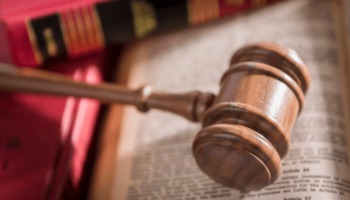The Role of Judicial Review in Constitutional Law
Constitutional law is the cornerstone of any well-functioning democratic society, providing the framework for the division of powers, fundamental rights, and the overall structure of government. One of the pivotal elements within constitutional law is judicial review, a process by which courts examine the constitutionality of legislative and executive actions. Judicial review plays a vital role in upholding the principles of constitutionalism, protecting individual rights, and maintaining the balance of power among branches of government.
Defining Judicial Review
At its core, judicial review is the power of the judiciary to review and, if necessary, invalidate laws and actions that are deemed unconstitutional. This authority serves as a crucial check on the legislative and executive branches of government, preventing them from overstepping their constitutional boundaries. The concept of judicial review was famously established by the United States Supreme Court in the landmark case of Marbury v. Madison (1803), where Chief Justice John Marshall declared that the Court had the authority to review and strike down laws inconsistent with the Constitution.
Upholding Constitutionalism
Judicial review ensures that the fundamental principles enshrined in a country’s constitution remain sacrosanct. It acts as a safeguard against government actions that could undermine the rule of law, separation of powers, and the overall democratic order. By subjecting laws and actions to constitutional scrutiny, courts ensure that the government operates within the limits set by the constitution, preventing the concentration of power in any single branch.
Protecting Individual Rights
Perhaps one of the most important roles of judicial review is safeguarding individual rights and liberties. Constitutions often contain a Bill of Rights or similar provisions that guarantee citizens certain freedoms and protections. Judicial review empowers the courts to strike down laws that infringe upon these rights, ensuring that individual liberties are not compromised by governmental actions. This function is particularly crucial in cases where the rights of minorities or marginalized groups may be at risk.
Balancing Government Powers
In many democratic systems, power is divided among different branches of government to prevent tyranny and abuse of authority. Judicial review contributes to this balance of powers by holding the legislative and executive branches accountable. If a law passed by the legislature or an action taken by the executive branch is found to be unconstitutional, the courts have the authority to nullify it. This prevents any one branch from becoming too dominant and maintains the delicate equilibrium necessary for a functional democracy.
Controversies and Limitations
While judicial review is widely recognized as a cornerstone of constitutional law, it is not without its controversies and limitations. Critics argue that unelected judges should not have the final say on matters of public policy, as this may undermine the democratic will of the people. Additionally, the scope of judicial review can sometimes lead to disagreements over the interpretation of constitutional provisions, sparking debates over the proper balance between judicial power and the authority of other branches.
Conclusion
In the realm of constitutional law, judicial review stands as a bulwark against government overreach, protector of individual rights, and guardian of the democratic order. It ensures that the principles enshrined in a nation’s constitution are upheld, while preventing any one branch of government from accumulating excessive power. While debates surrounding its scope and authority continue, the fundamental role of judicial review in shaping and safeguarding democratic societies remains a cornerstone of modern governance.


